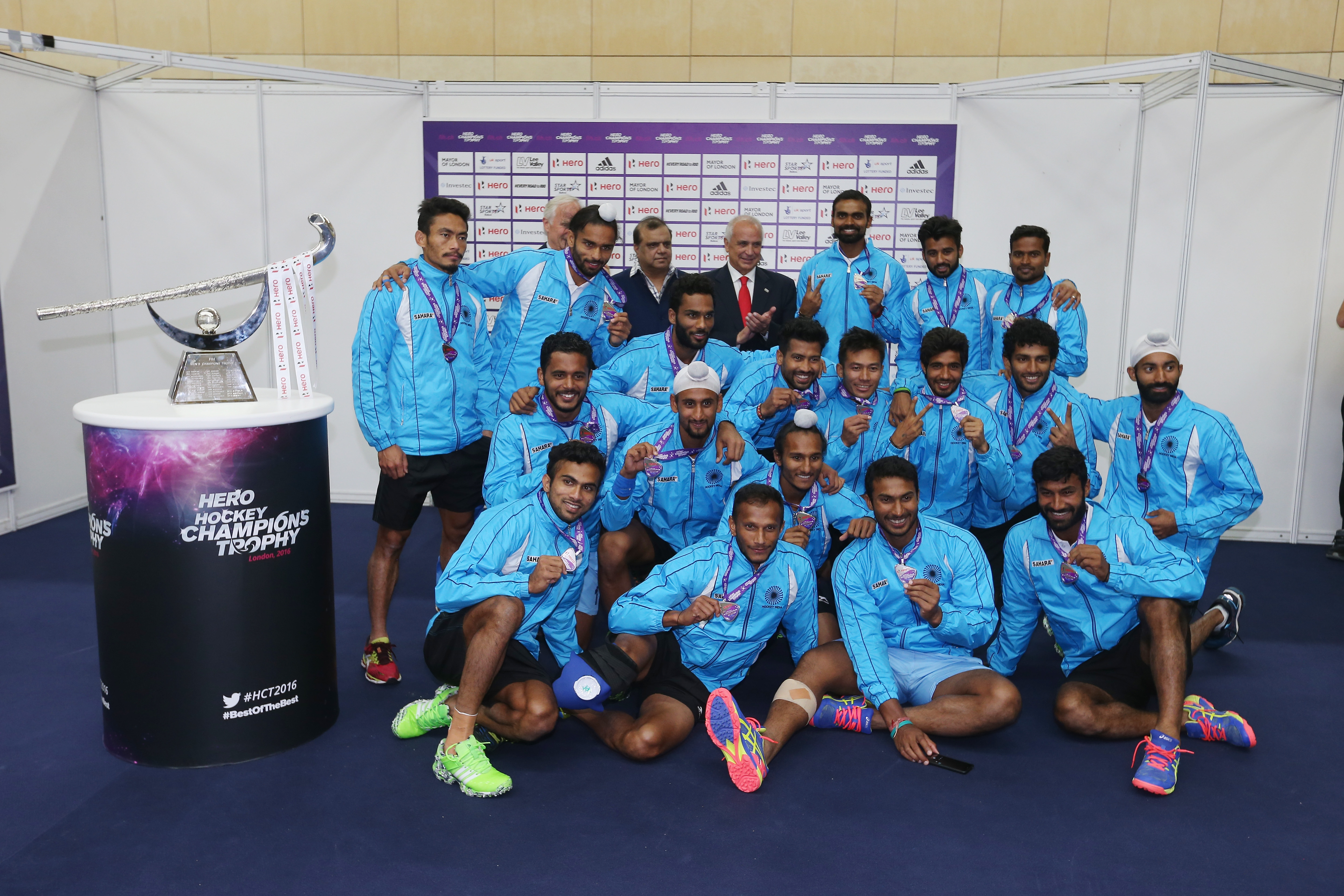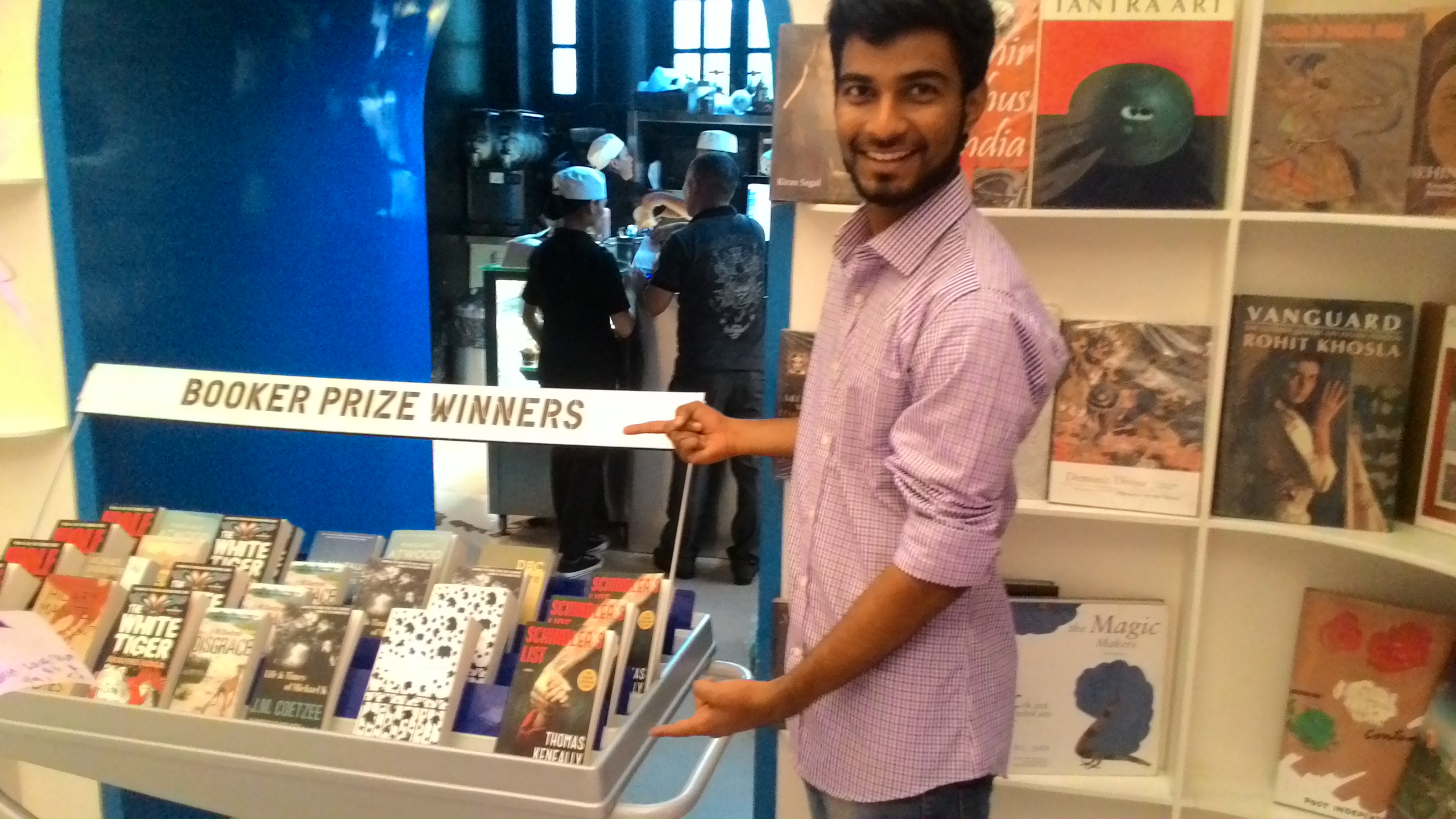Can the hockey team prove Viren Rasquinha happily wrong at the Olympics?
Olympic Gold Quest CEO Viren Rasquinha had recently said that expecting India to win a hockey medal at Rio would be unrealistic–a shocking statement from a very experienced man. But happily for him, the men’s team’s latest performances might just prove him wrong.

Viren Rasquinha is not just any Indian sports enthusiast. A Hockey Junior World Cup gold medalist, Asian Games silver medalist, Asia Cup gold medalist, former India captain, Arjuna Awardee and CEO of Olympic Gold Quest(OGQ)–a foundation looking to help India win Olympic Gold medals. So when the man downplayed India’s chances of winning a hockey medal at the Rio Olympics, it wasn’t without reason. After all, in 2008, the men’s team had failed to qualify for the Olympics for the first time since 1928, and in 2012, after a much-hyped and scripted return to the event, they ended up with the wooden spoon–the worst-ever showing by the team. They managed to win just one match in the Hockey World Cup in Hague, finishing 9th out of 12 teams. For Rio 2016, the women’s team had just managed to qualify after 36 years, and realistically, anything they achieve is just a bonus. A medal from field hockey would probably have been asking too much.
(Also read- From battling abuse and addiction to captaining India at the World Cup: The story of Pankaj Mahajan)
Post the World Cup, the men’s team travelled to Glasgow to take part in the Commonwealth Games 2014. They managed to reach the final to take on Australia, but a dominant performance from the World Champions meant India had to settle for silver. It surely did not have the best teams in the fray, but Australia, England, New Zealand and Malaysia were no pushovers. Incheon was their next destination, for the Asian Games 2014. This was an event with huge stakes as the gold medalists would qualify as Asian representatives to the 2016 Olympics. India grabbed that opportunity with both hands, staving off competition from hosts South Korea and traditional rivals Pakistan and winning their first Asian Games gold after 16 years. The 2014-15 Hockey World League was where India had to really show up, with the best teams in the fray, all taking on each other over two years. The team had to dig deep, and some gutsy displays meant India was only behind Australia and Belgium in the final standings, finishing third.
They went one better in the Sultan Azlan Shah Cup, reaching the title clash before running into a red-hot Australian team, who slotted four goals past the Indian defence. More heartening than the result though were the positive signs the team was showing. Rising star Harmanpreet Singh proved he was the real deal even at the senior level, with some good defending and accurate drag-flicks. It was surely going to give coach Roelant Oltmans a happy selection dilemma, with pressure increasing on VR Raghunath and Rupinderpal Singh to keep their places. Nikkin Thimmiah, the work-horse of the team, made a good comeback, combining well with SV Sunil and Ramandeep Singh up front to help India score 18 goals in the tournament.
The clearest signs that India was now a medal contender came in the Champions Trophy though. Invitees to the tournament consisting of the Olympic champions, the World Cup winners, World League champions and winners of Champions Challenge I, India were against mighty opposition. Sardar Singh and Rupinderpal Singh were rested for the tournament, the onus once again on the young brigade to learn and deliver. They did not disappoint at all with firm defending and slick counter-attacking catching the eye. Particularly notable was the pressing play against the Germans in a 3-3 draw in the opening game. Chinglensena, SV Sunil, Akashdeep, Thimmiah and Manpreet, all working in tandem to pressurise the defending champions into making mistakes. In Sreejesh, they had a cool custodian who would keep the opponents out of his goal more often than not.
India’s mental strength and Oltman’s tactical awareness were visible in the game against Great Britain, where they pulled themselves together after an out-of-sorts first quarter. Scoring from their first shot on goal, India upped the ante and displayed their counter-attacking prowess. The match against Korea also showed signs that the Indian team, though young, believed in its strengths and would not go down without a fight. After a 57th minute Korean equaliser looked to undo all the good work from earlier, the Men in Blue scored seconds later with Talwinder Singh and Thimmaiah combining to tap the ball in.
Arguably, India’s best performance of the tournament came in the final against Australia. Reeling from a 2-4 loss to the Kookaburras just a day earlier, the team went in as the underdogs. But India fought stubbornly refusing to let Australia’s barrage of shots and penalty corners break them. They counter-attacked like a dream, finding space, dribbling well, and catching the defense off-guard. A final ball seemed the only thing lacking though, an issue plaguing the team all through. They could not hold their nerve in the shoot-out, but during the 60 minutes of normal time, the World Champions had clearly been flustered. India, as a team, had grown up.
A silver medal at the Champions Trophy is no small feat. A change in the format of the Olympics means finishing fourth in the group will guarantee India a quarter-final berth, from where two good performances can assure a medal. In a group comprising Australia, Germany and Argentina, this would be no cake-walk. But Ireland and Canada are the other teams in the pool, relatively easier opponents, and the Champions Trophy performance will give them enough belief to give the favourites a run for their money.
(Also read - Dhoni reveals Zimbabwe tour is actually front for Team India's family outings & African safaris )
Their dogged resistance has surprised the best of teams, and the young legs have brought a new lease of life to India’s attacking game. A much higher penalty corner conversion rate would place them right alongside the front-runners in terms of chances. As always with Indian sport, a good performance has already raised the expectations from the team. But they have an experienced coach in Oltmans and with the right discipline and frame of mind, the team can build on this heartening result. History beckons and the team looks determined to enter the record books. Viren Rasquinha would have his fingers crossed, praying that he be proved emphatically wrong.
These Indian kids can create footballing history, but they need your help. You can help Slum Soccer send 20 of our most talented footballers to represent INDIA at the Homeless World Cup at Glasgow. Click here to know more.

Comments
Sign up or log in to your account to leave comments and reactions
0 Comments